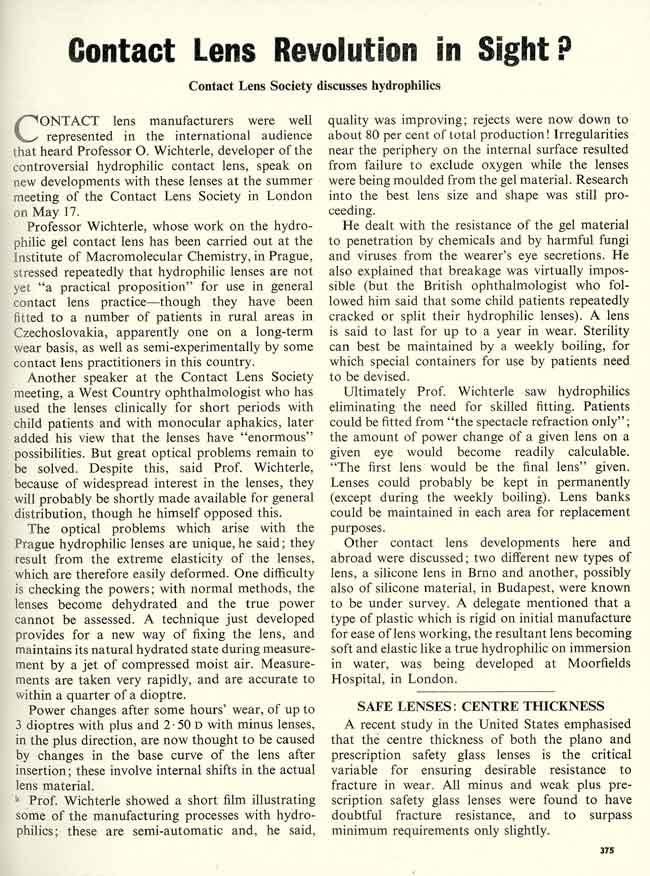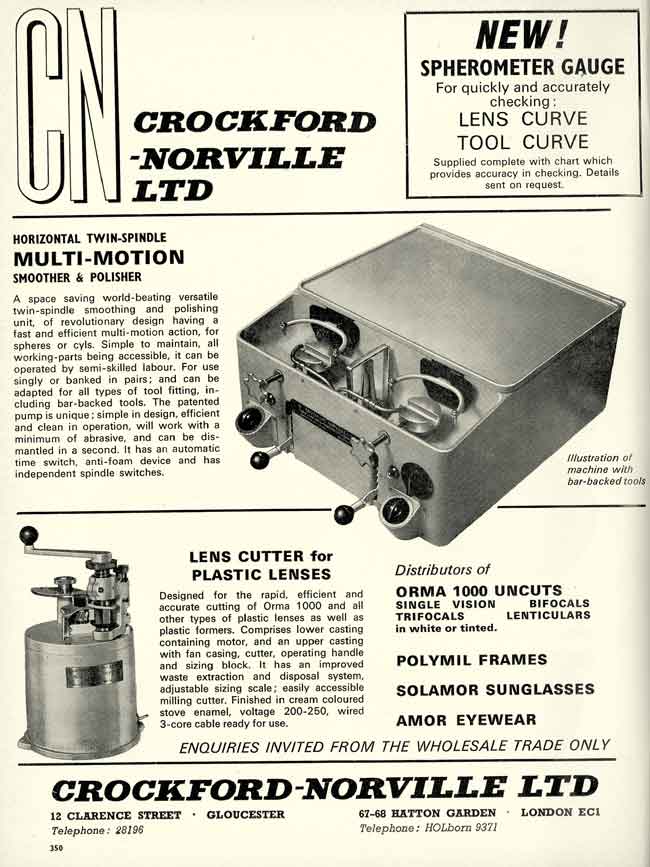This week’s Echoes of the Past looks at the May 1965 issue of Optician sister-publication Manufacturing Optician.
Today’s contact lens manufacturers constantly strive to produce more comfortable, clearer lenses for wearers and the rate of innovation in the sector is rapid. However, a major shift in technology could be some time away.
An article on a Contact Lens Society meeting pondered whether there was a contact lens revolution on the horizon thanks to the development of ‘controversial’ hydrophilic lenses. The developer of the lenses, Professor O Wichterle, who worked out of Prage, spoke on the future hydrophilic gel lenses and how there had experimental fittings in Czechoslovakia but stressed that they were not ready for general contact lens practice.
At the time, the material posed a number of challenges and Wichterle believed they were unique. The lenses had extreme elasticity and were easily deformed and power changes were recorded after some hours of wear – caused by changes in the base curve after insertion.
Despite its challenges, Wichterle was quick to point out the benefits. The manufacturing process was semi-automated and quality of the material itself was improving. He outlined the material’s resistance to penetration from chemicals and harmful fungi and viruses from eye secretions. Longevity was also seen as a positive, as lenses were said to be able to be worn for a year. However, patients would need to boil the lenses weekly.
Ultimately, Wichterle saw hydrophilic lenses eliminating the need for skilled fitting and that patients could be fitted from just a spectacle refraction.
Elsewhere in the issue, Dr H Catleen detailed the mechanics of creating an export group and there was a full round up of the Harrogate and Bristol optical congresses.


